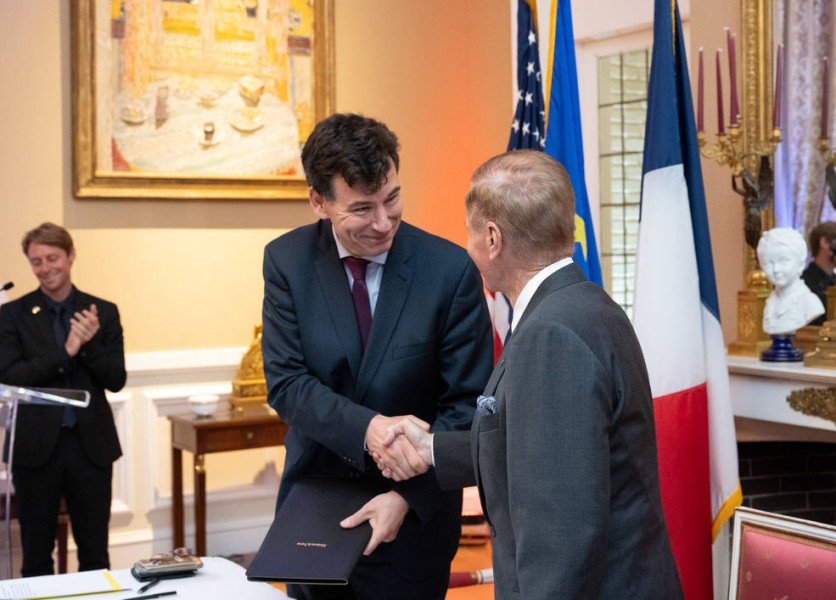The Artemis Accords, NASA's worldwide commitment to developing best practices for ongoing partnership on moon exploration, welcomes France as its 20th signatory.
The signing occurred on June 7 and added to a rapidly growing number of countries who have signed the accords, with Colombia joining just a month ago.

Bienvenue France
The event, which followed a celebration marking the 60th anniversary of the creation of CNES, the French space agency, was sponsored by the French Ambassador to the United States, Philippe Étienne.
At the signing ceremony, NASA Administrator Bill Nelson and CNES President Philippe Baptiste expressed their enthusiasm for the achievement.
Nelson said that NASA is thrilled to welcome France as one of the members of the Accord family. He remarked, "France is one of the United States' oldest allies and our partnership in space exploration dates back more than half a century."
France is the 20th signatory of the Artemis Accords and the fifth of the European Union.
The Artemis Accords developed a unified vision for space exploration collaboration among nations participating in NASA's 21st-century lunar exploration programs through a "practical set of principles."
Baptiste stated that France's participation in the accords is a significant step forward in its space collaboration with the United States, which he sees as critical for both countries, particularly in Mars exploration and Earth-observation missions.
Read also :
NASA Artemis I Offers Last Chance to 'Fly Your Name to the Moon': Here's How to Register
The Artemis Program
NASA's Artemis program has devised a framework for returning astronauts to the moon, and its future is contingent on a global effort.
The Artemis program's backbone, NASA's Space Launch System (SLS) rocket and new crew-capable Orion capsule, are the result of a multi-national partnership, with Orion's power and propulsion systems incorporated into the vehicle's service module, which was donated by the European Space Agency (ESA).
International contributions will be required for NASA's plans for a tiny moon-orbiting space station dubbed Gateway. In orbit around the moon, Gateway will act as Orion's harbor, allowing personnel to depart in a separate vehicle geared for landing on the surface of the moon.
However, Gateway and humanity's journey to the moon remains a long way off. Artemis 1, the first Artemis mission, may launch later this year, although it is contingent on a successful "wet dress rehearsal" of the rocket and ground equipment, which is planned for June 18.
NASA said in a press statement announcing France's inclusion that it expects other countries to sign the accords in the next months or years as it continues its worldwide outreach to achieve a "safe, peaceful, and prosperous future in space."
Related Article :
Next NASA Artemis I Wet Dress Rehearsal's Status To Be Discussed! Where To Watch, Discussion Topics, and More
This article is owned by Tech Times
Written by Joaquin Victor Tacla
Read also : NASA Artemis I Offers Last Chance to 'Fly Your Name to the Moon': Here's How to Register
Related Article : Next NASA Artemis I Wet Dress Rehearsal's Status To Be Discussed! Where To Watch, Discussion Topics, and More
ⓒ 2025 TECHTIMES.com All rights reserved. Do not reproduce without permission.




